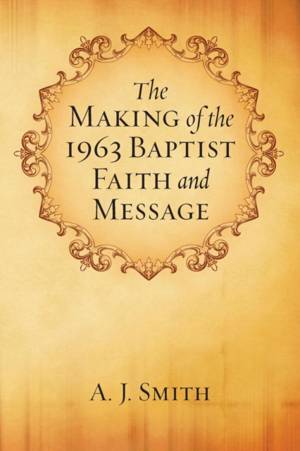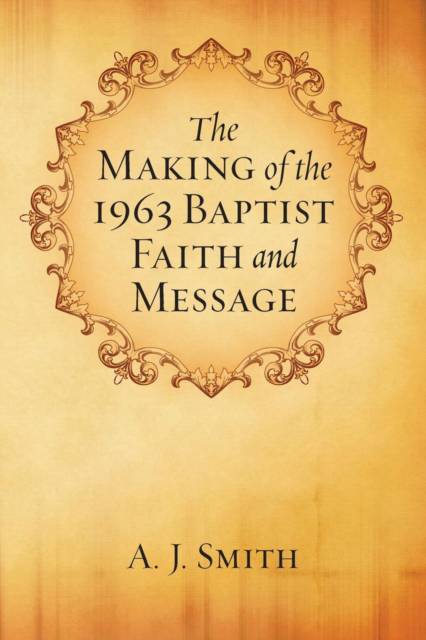
- Afhalen na 1 uur in een winkel met voorraad
- Gratis thuislevering in België vanaf € 30
- Ruim aanbod met 7 miljoen producten
- Afhalen na 1 uur in een winkel met voorraad
- Gratis thuislevering in België vanaf € 30
- Ruim aanbod met 7 miljoen producten
Zoeken
€ 47,45
+ 94 punten
Uitvoering
Omschrijving
Questions regarding the orthodoxy of Dale Moody and Ralph Elliott propelled the Southern Baptist Convention (SBC) toward a re-evaluation of its doctrinal statement, the Baptist Faith and Message (BFM). The SBC adopted this document in 1925 under the leadership of E. Y. Mullins when faced by the challenge of modernism. This dissertation argues that the 1962 Committee on Baptist Faith and Message produced a document that expressed subtle shifts in Baptist theology. This shift had the effect of assuring the conservative base while allowing enough latitude in interpretation for those serving in the academy to teach more "progressive" views. After a first, introductory chapter, chapters 2 and 3 trace the historical developments leading to the formation of the Committee. Biblical inspiration and interpretation were key concerns, but as chapter 3 demonstrates, other concerns drew the attention of the Committee. Chapters 4 and 5 deal with the ever-sensitive issue of the relationship between Baptist confessionalism, soul liberty, and soul competency. Each chapter examines how Baptist confessionalism functioned in relation to these concepts. Chapter 6 examines in detail the work of the Committee itself and looks at those persons or groups who influenced the outcome of the Committee's work. Of special note are the contributions made by Wayne Ward, Leo Garrett, the religion faculty of Mercer University, and the theology faculty of Southern Seminary. Chapter 7 examines four areas where the 1963 BFM altered the confessional expression of Baptist doctrines: (1) Scripture; (2) Man; (3) Salvation; (4) The Church. Chapter 8 is the conclusion. Four appendices contain early drafts of the Committee's work.
Specificaties
Betrokkenen
- Auteur(s):
- Uitgeverij:
Inhoud
- Aantal bladzijden:
- 266
- Taal:
- Engels
Eigenschappen
- Productcode (EAN):
- 9781556354267
- Verschijningsdatum:
- 5/08/2008
- Uitvoering:
- Paperback
- Formaat:
- Trade paperback (VS)
- Afmetingen:
- 152 mm x 226 mm
- Gewicht:
- 362 g

Alleen bij Standaard Boekhandel
+ 94 punten op je klantenkaart van Standaard Boekhandel
Beoordelingen
We publiceren alleen reviews die voldoen aan de voorwaarden voor reviews. Bekijk onze voorwaarden voor reviews.








